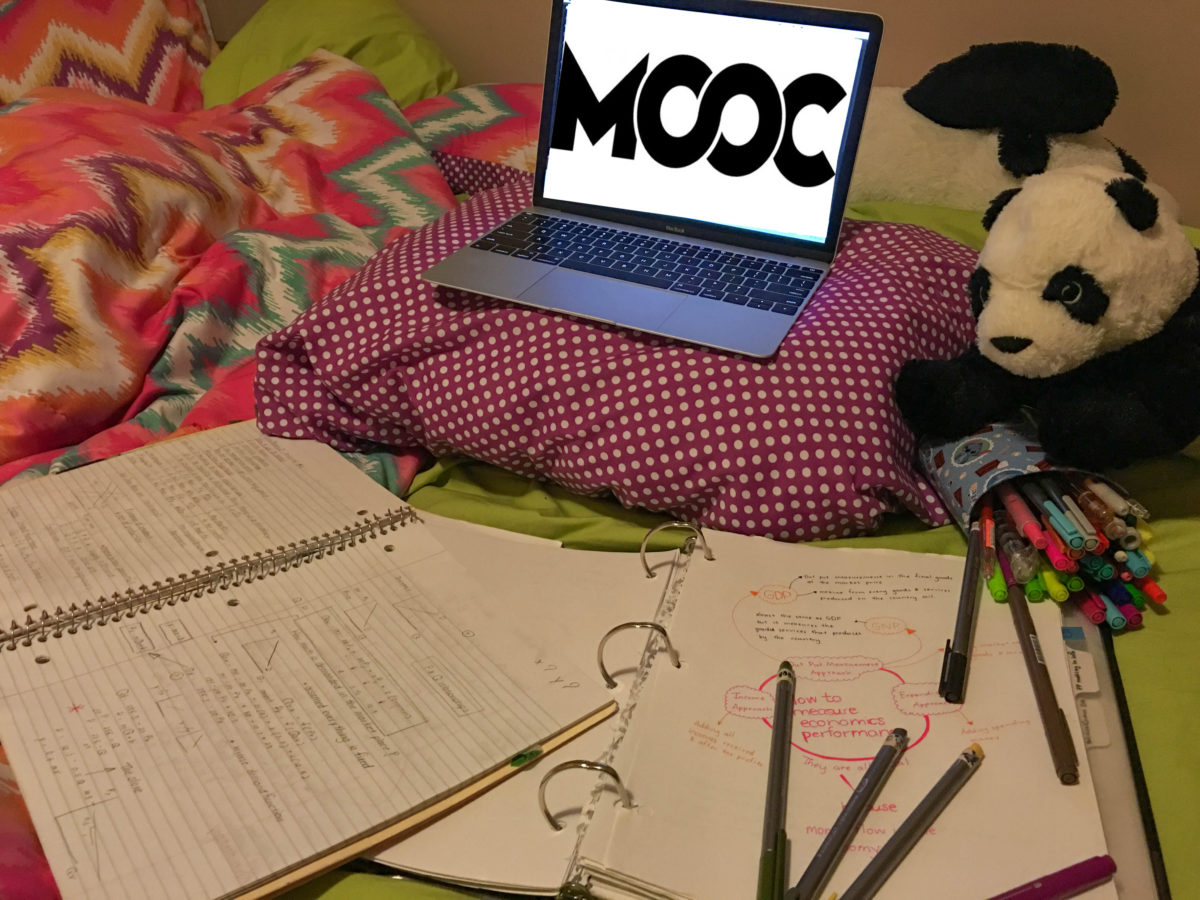Imagine if you could lay in bed all day, not have to talk to people, pick and choose what you want to learn, and still get an education at your own pace – for free.
Massive Open Online Courses, or MOOCs, are kind of like that. They are online university courses open to the masses and accessible online. To some, MOOC sounds like the name of a goofy cartoon character, but to many, these are considered to be the future of higher education.
For Ryan Elliott, 26, MOOCs provide him with extra bits of education that compliment his job as a fulltime instructor at the Royal Canadian Armoured Corps School.
“Being a good student is essential in being a good instructor,” he said.
Elliott is taking two MOOCs on Ancient Chinese philosophy and Sustainable Urban Development through edX, as well as Physics through Udacity. He is also studying trigonometry, calculus and algebra on a similar program, Khan Academy.
The courses, which are a form of distance education, are accessible through the respective program’s websites. Programs like edX are carried by dozens of universities, but Elliott’s course is run by University of British Columbia and University of Delft in Amsterdam. Others, like Udacity, are simply run by the organization itself by employing its own people to design courses, but also work with companies like Google, AT&T, and Amazon.
Elliott explained MOOCs can be done at your own pace, and you are able to re-watch videos you’re having trouble understanding. You can participate in discussions with teaching assistants and professors on the website.
“It can be extremely effective if you really put in the effort,” he said.
Professor Dev Gupta, an economics professor at STU, started creating distance courses in New Brunswick during Frank McKenna’s government between 1987 and 1997. He said he was approached by McKenna to do something about distance education.
“There was nothing like that,” Gupta said. “We had to have two-part lines. Telephone lines, you know? One line for the speaking, one line for changing the slides, that kind of thing.”
Gupta, who has been teaching at STU since 1985, used to teach his economics classes online. This is the first year he hasn’t.
“Students are not interested in online courses,” he said. “As everybody else is going up (in the world of technology uses), we are going (backwards).”
Gupta said there a good and bad things about both online and classroom settings, but there is much to be missed out on when it comes to MOOCs.
“There is classroom interaction, social interaction,” said Gupta. “You learn different things and develop a little different. Online, you miss that part.”
Of course, Elliott said one aspect that makes his current courses distinctively better than universities is the price. All of his courses are 100 percent free and respective nanodegrees only cost between $50 and $200 depending on the program.
Elliott said communities need to support and recognize MOOCs as real education, and rethink the worth of the so-called university experience.
“Distance education is the future of higher education in general,” Elliott said. “Universities needs to differentiate these paths and make it so you can perform a vast majority of your degree from the comfort of your home.”
In a world of constant technological advances, Gupta said online courses are expanding no matter what. Prestigious institutions like Harvard, MIT, and Yale are all online and offer degrees.
The familiarity with technology is what Gupta said will be the determining factor in the success of MOOCs, especially for the teaching aspect. If there is ever a total possibility for MOOCs to be the future of higher education, a gradual switch will be the key to their success.
“Slowly build up, slowly change.”

